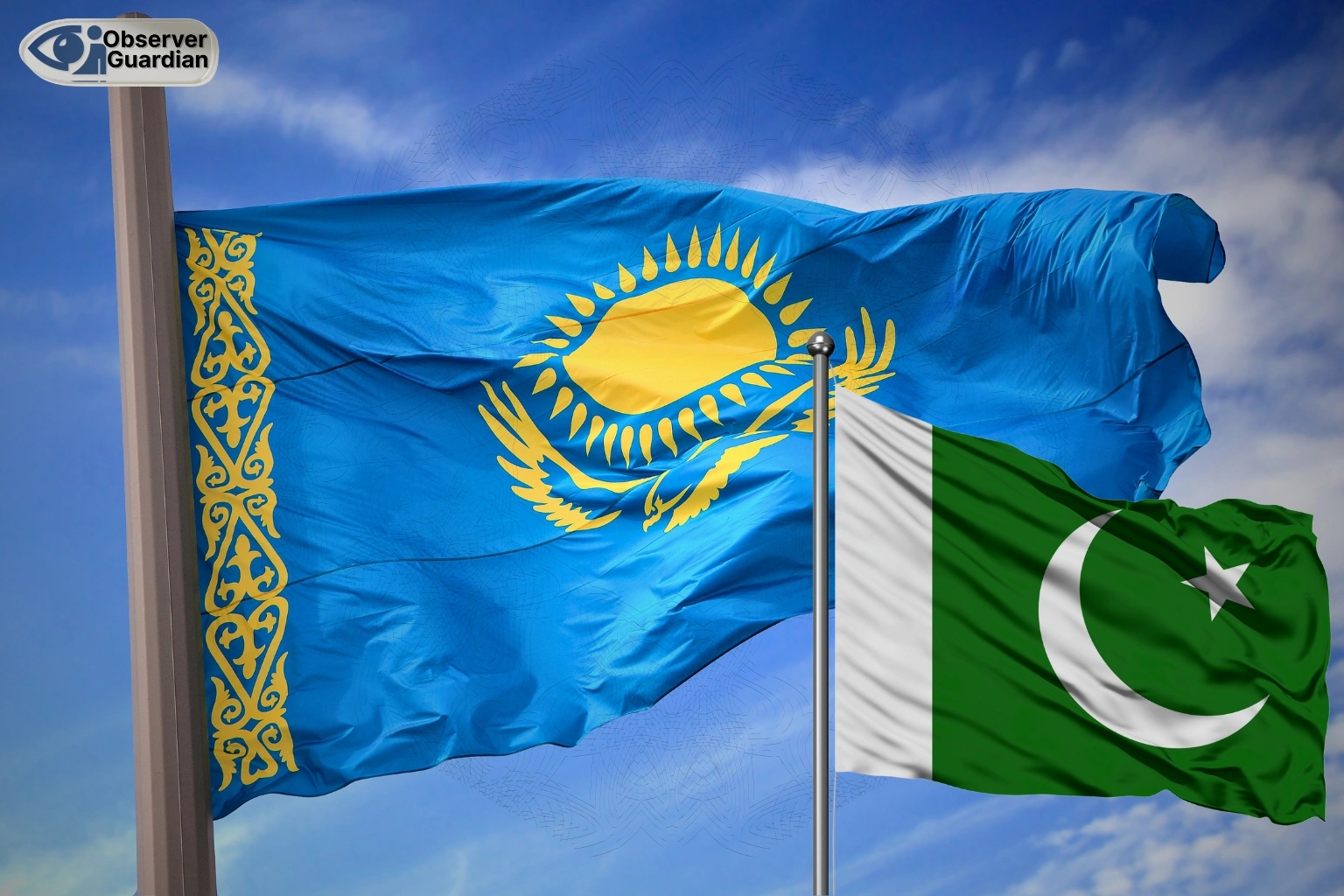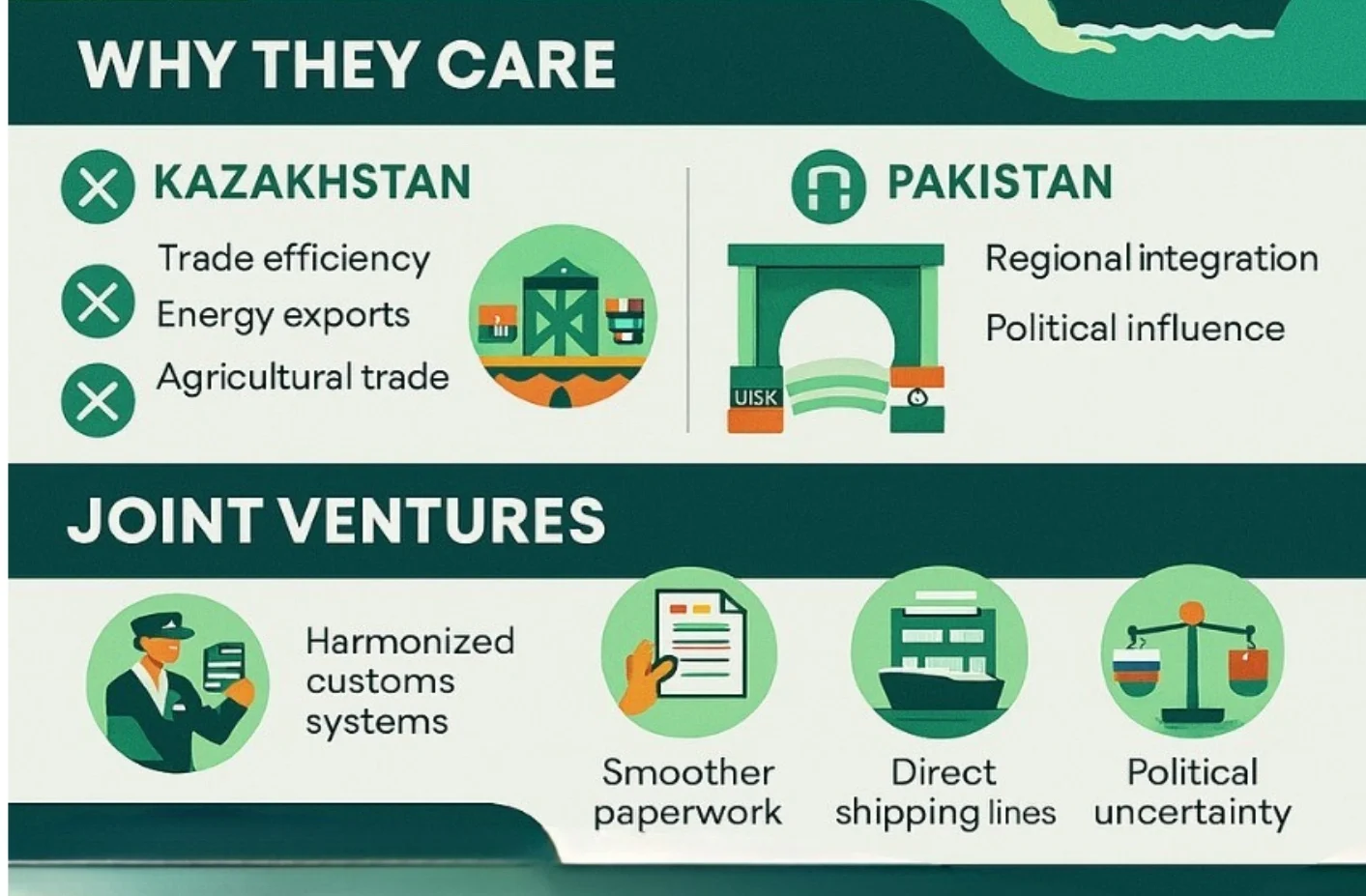Pakistan’s ports have always been its biggest selling point to the region. Sitting right on the Arabian Sea, they connect landlocked neighbors to the wider world. Now, Kazakhstan, which has been hunting for more efficient trade routes, is showing real interest in using Karachi and Gwadar as gateways for its exports.
This came up during a meeting in Islamabad, where Pakistan’s Maritime Affairs Minister, Muhammad Junaid Anwar Chaudhry, sat down with Kazakhstan’s Ambassador Yerzhan Kistafin. Pakistan floated the idea of joint ventures at both Karachi and Gwadar, while the Kazakh side made it clear they see value in these ports as regional transit hubs.
Why Kazakhstan Cares
Kazakhstan is massive in size, but it has no coastline. That makes trade complicated. Right now, it mostly relies on Russian or Chinese routes to move goods. This can be slow, expensive, and politically tricky. Besides, having a southern corridor through Pakistan means shorter transit to the Middle East, Africa, and beyond.
Moreover, energy, minerals, and agricultural products make up a huge chunk of Kazakhstan’s exports. If they can ship wheat or oil through Karachi or Gwadar, instead of pushing everything north, the math changes quickly.
In a world where logistics costs can make or break competitiveness, those savings are attractive.
Pakistan’s Pitch
Pakistan’s case is straightforward “Our ports are not just for us, but for the region.” Karachi already handles heavy volumes, while Gwadar, still developing, sits at one of the world’s busiest sea lanes. It is also backed by China through the China-Pakistan Economic Corridor (CPEC), which has poured money into new roads, rail, and port facilities.
If Kazakhstan buys in, it helps Pakistan’s larger ambition to become a central hub linking South Asia with Central Asia, the Middle East, and Africa. For Islamabad, this is as much about politics as it is about economics. Being the bridge between regions gives Pakistan leverage and visibility.
What Joint Ventures Could Look Like
When Pakistan talks about “joint ventures,” it is not just lip service. That could mean Kazakhstan putting money into specialized port terminals, warehouses, or cold storage facilities tailored to their goods. A dedicated Kazakh logistics hub at Gwadar, where oil, wheat, or copper moves straight off trains and onto ships, would be a beneficial move for both countries.
It could also extend to harmonized customs systems, smoother paperwork, and direct shipping lines. Those things sound dull, but they are what make or break trade efficiency. If trucks wait for days at borders or paperwork stalls at the port, the whole plan collapses.
Next Steps
Both sides agreed to keep the momentum going with ministerial level talks soon. That is where the real details, timelines, investments, and regulations will get hammered out.
The conversation is also expected to touch on rail to port links. Kazakhstan already has strong rail infrastructure, and Pakistan has been upgrading its networkWs under CPEC. Connecting those dots could create a straight-through corridor from Almaty down to Gwadar.
The Bigger Picture
If this moves forward, it is not just Kazakhstan and Pakistan who win. Other Central Asian states like Uzbekistan or Kyrgyzstan face the same landlocked problem, and they will be watching closely. A working trade route through Pakistan would give them a new option too.
Globally, this plugs into bigger initiatives like China’s Belt and Road and the Shanghai Cooperation Organization’s push for regional integration. Additionally, Gulf states, which are always hungry for energy deals and new trade routes, will keep a close eye on how Gwadar evolves.
Challenges to Watch
Of course, this is not all smooth sailing. Gwadar has seen security issues that worry investors. Bureaucracy and slow customs processes are another problem. And while both sides seem interested now, political will can shift quickly. Agreements without consistent follow-through tend to fade into the background.
For Kazakhstan, there is also a balance to manage. It cannot afford to upset Russia or China, both of whom dominate existing trade routes. Any move towards Pakistan will likely be gradual, framed as diversification rather than replacement.
Kazakhstan’s interest in Pakistani ports is a reminder of how geography shapes trade decisions. For Astana, this is about getting a quicker, cheaper path to the sea. For Islamabad, it is a chance to prove its ports can serve more than domestic needs, and to position itself as Central Asia’s southern door to the world.
The talks ahead will show whether this enthusiasm turns into real infrastructure, investments, and trade flows. If it does, Karachi and Gwadar could become far more than just Pakistani ports they could become Central Asia’s lifeline to the ocean.
⚠ Disclaimer
The views and opinions expressed in this article are exclusively those of the author and do not reflect the official stance, policies, or perspectives of the Platform.








